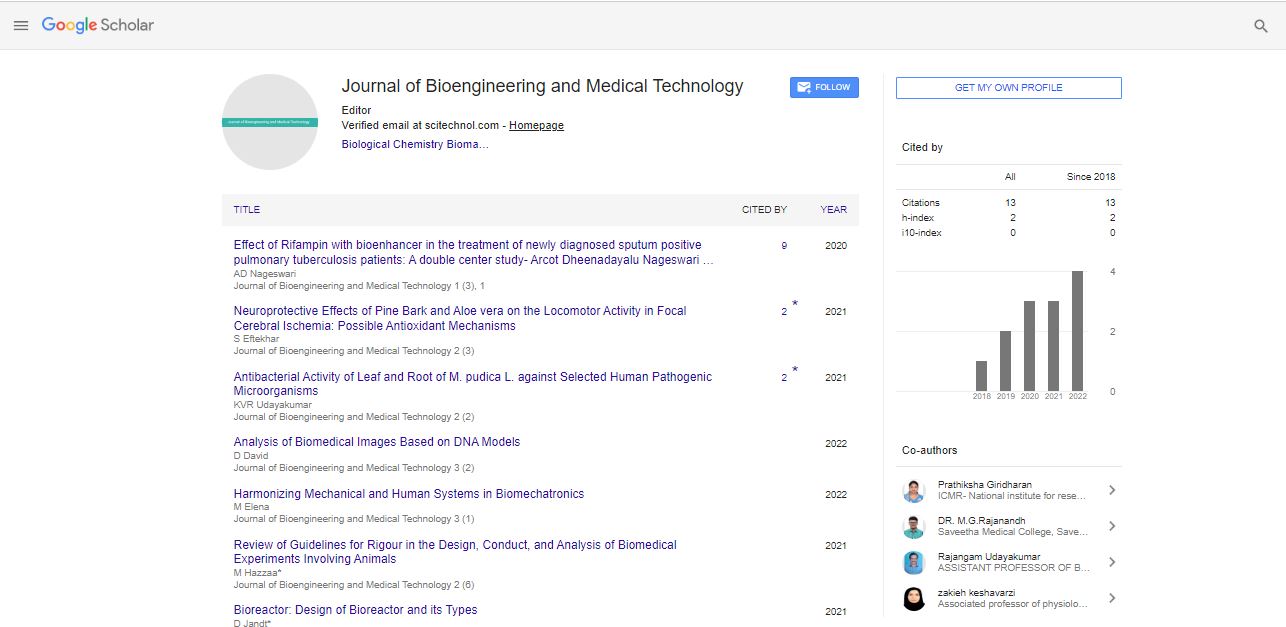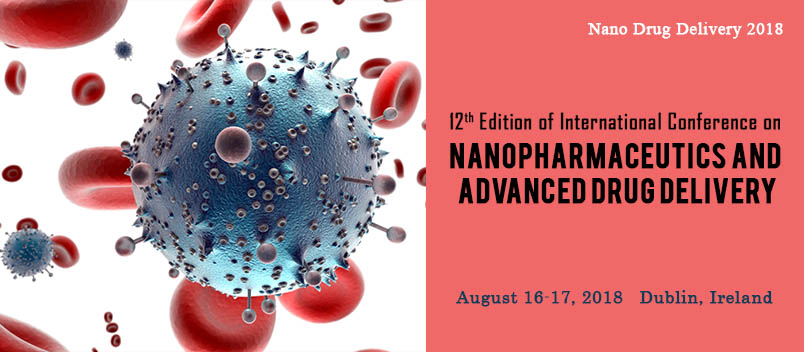Perspective, J Bioeng Med Technol Vol: 4 Issue: 1
Smart Medical Equipment for Efficient Healthcare Delivery
Pascale Carayon*
Department of Health Sciences, University of the Cumberlands, Williamsburg, USA
*Corresponding Author: Pascale Carayon
Department of Health Sciences,
University of the Cumberlands, Williamsburg, USA;
E-mail: caryonpas@yahoo.com
Received date: 15 February, 2023, Manuscript No. JBMT-23-96033;
Editor assigned date: 17 February, 2023, Pre QC No. JBMT-23-96033(PQ);
Reviewed date: 03 March, 2023, QC No. JBMT-23-96033;
Revised date: 10 March, 2023, Manuscript No: JBMT-23-96033(R);
Published date: 17 March, 2023, DOI: 10.35248/jbmt.1000067
Citation: Carayon P (2023) Smart Medical Equipment for Efficient Healthcare Delivery. J Bioeng Med Technol 4:1.
Description
Smart medical equipment refers to advanced technological devices that help improve the efficiency and effectiveness of healthcare delivery. These devices utilize state-of-the-art technologies such as artificial intelligence, machine learning, and the Internet of Things (IoT) to provide accurate, real-time patient data and facilitate better decision-making by healthcare professionals. The use of smart medical equipment has revolutionized the healthcare industry by streamlining various processes, from patient diagnosis and treatment to data management and analysis. Smart medical equipment has enabled healthcare providers to offer more personalized care to patients, resulting in better health outcomes and reduced healthcare costs. One of the key benefits of smart medical equipment is that it can facilitate remote patient monitoring. With the advent of wearable medical devices, healthcare providers can monitor patients' vital signs, track their activity levels, and receive real-time notifications if any abnormalities occur. This technology allows healthcare providers to keep an eye on their patients even when they are not in the hospital or clinic, making it easier to catch potential health issues before they become serious. Another way that smart medical equipment has improved healthcare delivery is by reducing errors in diagnosis and treatment. With smart medical devices, healthcare professionals can access accurate, up-to-date patient information that enables them to make informed decisions about patient care. This data can include everything from medical histories and current medications to lab results and imaging scans. By having access to this information in real-time, healthcare providers can reduce the risk of errors in diagnosis and treatment, leading to better health outcomes for patients.
Smart medical equipment has also improved healthcare delivery by increasing efficiency in healthcare settings. Automated medication dispensers, for example, can help reduce the time it takes for nurses to distribute medications to patients, freeing up more time for other important tasks. Electronic Health Records (EHRs) have also improved efficiency in healthcare settings by reducing the need for paper-based records, which can be time-consuming and error-prone to manage. Finally, smart medical equipment has the potential to reduce healthcare costs by improving patient outcomes and reducing the need for hospitalization. Remote patient monitoring, for example, can help patients manage chronic conditions more effectively, reducing the need for hospitalization or emergency care. Similarly, smart medical devices that provide real-time patient data can help healthcare providers make more informed decisions about patient care, resulting in better outcomes and fewer costly medical interventions. Despite these benefits, there are also some potential drawbacks to the use of smart medical equipment. One concern is the potential for data breaches or cyberattacks, which could compromise patient privacy and the security of sensitive medical information. Additionally, the use of smart medical equipment can be expensive, which may limit access to these technologies for patients and healthcare providers in certain regions.
In conclusion, smart medical equipment has the potential to revolutionize healthcare delivery by improving patient outcomes, increasing efficiency, and reducing costs. By leveraging the power of advanced technologies such as artificial intelligence, machine learning, and the internet of things, healthcare providers can gain access to real-time patient data that facilitates better decision-making and more personalized care. While there are some potential drawbacks to the use of smart medical equipment, the benefits far outweigh the risks, and these technologies are likely to play an increasingly important role in the future of healthcare delivery.
 Spanish
Spanish  Chinese
Chinese  Russian
Russian  German
German  French
French  Japanese
Japanese  Portuguese
Portuguese  Hindi
Hindi 
